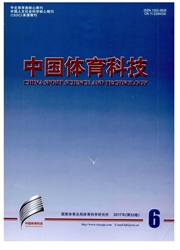

 中文摘要:
中文摘要:
为探究政府财税宏观调控政策对公共体育场馆体育消费经营主体和微观个体激励行为的影响,采用文献资料、访谈法、规范分析法等方法对政府财税政策支持公共体育场馆体育消费开展定性研究;运用公共财政理论、政府责任边界理论、激励理论等对财税经济政策与公共体育场馆体育消费关联性的学理因由进行具体阐释。研究认为:现行财税政策在税费负担、政策缺位、体制机制、政策执行等方面制约了公共体育场馆微观客体的体育消费行为。基于此,政府应以全面实施“营改增”税制改革为契机,降低公共体育场馆体育健身消费的经营成本与税收负担;构建分层次、差异化的体育消费财税激励机制和“政府引导、民间商业运营、社会民众参与”的公共体育场馆体育消费财税激励模式。研究旨在为激励我国公共体育场馆微观客体体育消费行为奠定理论基础,以期为更好地指导和促进公共体育场馆体育消费又好又快发展提供实践上的借鉴与参考。
 英文摘要:
英文摘要:
In order to explore the influences of the governmental fiscal macro-control policies on business entities in public sports stadiums and sports consumption and on individual motivation behavior, this paper adopted literature study, interview, normative analysis and other methods to carry out qualitative study of fiscal and taxation policies to motivate sports consumption. Meanwhile, the public financial theory, the boundary of government's responsibility boundary theory and incentive theory were used to explain the causes of the relevance of fiscal & economic policies and public sports consumption in sports stadiums. Research showed that the current fiscal and taxation policies had restricted the sports consumption in terms of tax burden, absence of policy, institutional mechanisms and policy implementation. Based on this, the government replaced business tax with value-added tax(VAT) as a structural tax reform, thus reducing the operating cost and tax burden of sports consumption in public stadiums, constructed multi-level, differentiated incentive mechanism for sports consumption tax and the incentive mode of "government guidance, private business operation, public participation". The research aimed to lay the theoretical foundation to motivate macro sports expense for promoting the sports con sumption.
 同期刊论文项目
同期刊论文项目
 同项目期刊论文
同项目期刊论文
 期刊信息
期刊信息
